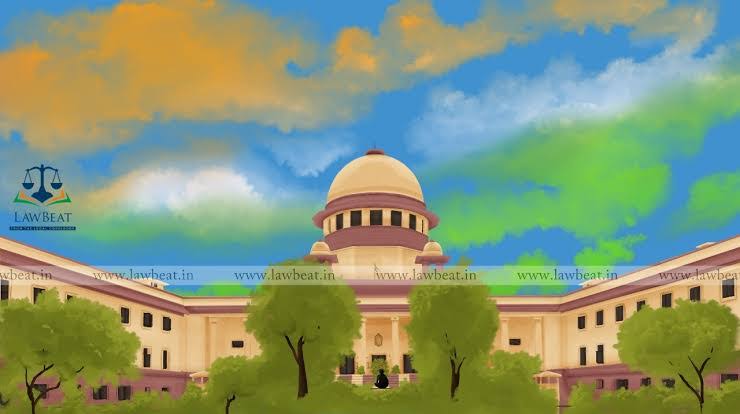Hindu woman’s right to maintenance a tangible right against property flowing from spiritual relationship between husband and wife: Supreme Court

The Supreme Court has recently upheld the judgment of the Rajasthan High Court stating that the Hindu woman’s right to maintenance is a tangible right against the property which flows from the spiritual relationship between the husband and the wife.
A bench of Justice Ajay Rastogi and Bela M Trivedi opined that "a Hindu woman’s right to maintenance was not and is not an empty formality or an illusory claim being conceded as a matter of grace and generosity."
"Such right was recognized and enjoined under the Shastric Hindu Law, long before the passing of the 1937 and the 1946 Acts. Where a Hindu widow is found to be in exclusive settled legal possession of the HUF property, that itself would create a presumption that such property was earmarked for realization of her pre-existing right of maintenance, more particularly when the surviving co-parcener did not earmark any alternative property for recognizing her pre-existing right of maintenance," the Court added.
The bench was hearing a plea challenging order of the Rajasthan High Court setting aside the Judgment of the Additional District & Sessions Judge, Class-1, Jaipur wherein the plaintiff had alleged that Bhonri Devi, widow of Late Shri Dhannalalji started harassing the plaintiff after the expiry of her predeceased husband, her husband's father, Ganeshnarayanji and her husband's father's brother, Harinarayanji. The plaintiff, Daulalji also claimed that he was adopted by Bakshji, who was the great-grandson of their common ancestor Gopalji.
It was alleged that Daulalji, after the death of Harinarayanji, being the only male member in the family as well as the legatee under the Will of Harinarayanji, had become the sole owner of the suit property and, therefore, was entitled to recover the possession of the suit property from Bhonri Devi.
Advocate Puneet Jain appearing for the appellant submitted that the High Court has committed an error in holding that Bhonri Devi had a right of maintenance even under the old Shastric Law, which had fructified into a full right under Section 14(1) of the Hindu Succession Act, 1956.
It was also submitted that "Mere possession of property or a right to maintenance under the old Shastric Law did not give any right to Bhonri Devi under Section 14(1) of the said Act of 1956."
"Right to maintenance is not a “Right in a specific property” but it is a “Right against the properties of the joint family generally,” Jain added.
Whereas, Senior Advocate Pallav Shishodia appearing for the respondents contended that "The exclusive possession of widow of HUF property itself would create a presumption that such property was earmarked for realization of her pre-existing right of maintenance, more particularly when the surviving co-parcener did not earmark any alternative property for recognizing her pre-existing right of maintenance."
In reference to the submissions of the parties, the bench opined that "In the instant case, we are concerned with the claim of Bhonri Devi of having become the full owner in respect of the suit property on the ground that she was in settled legal possession of the suit property before and after the commencement of the Act, in lieu of her pre-existing right of maintenance, and such limited ownership right had fructified into full ownership by virtue of Section 14(1)."
Whereas, the bench while referring to the judgment in the cases of V Tulasamma and other vs. Sesha Reddy, and Raghubar Singh & Ors vs Gulab Singh & Ors, noted that there remains no shadow of a doubt that a Hindu woman’s right to maintenance was not and is not an "empty formality or an illusory claim" being conceded as a matter of grace and generosity.
"She is entitled to retain the possession of that property in lieu of her right to maintenance. Section 14(1) and the Explanation thereto envisages liberal construction in favour of the females, with the object of advancing and promoting the socio-economic ends sought to be achieved by the said legislation," the Court held.
Cause Title: MUNNI DEVI ALIAS NATHI DEVI (DEAD) THR LRS. & ORS. Vs. RAJENDRA ALIAS LALLU LAL (DEAD) THR LRS. & ORS
(Parties in the matter were represented through their legal representatives)
